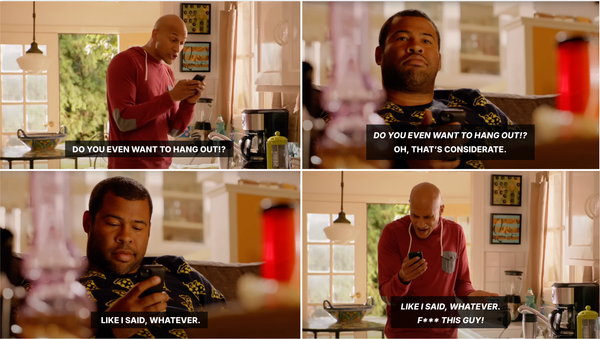High-quality mission: necessary but not sufficient
Here are four ways teams can go astray even if they have a fantastic, visionary mission – and what you can do about it.

We talk a lot about the importance of clear, business-critical missions for teams. And with good reason: the research backs this up, with ~70% of a team’s success being predicted by their mission, structure, and composition.
But we’ve all been on teams where the mission was great, but the performance was decidedly not.
Here are four ways teams can go astray even if they have a fantastic, visionary mission – and what you can do about it.
1/ There’s another team with an identical mission, and oops, you were working on the same thing

This happens so frequently, and happens in every possible area that you can imagine. Two departments buying the same software. Two teams creating a new product that targets the same consumer. Two agencies buying media against the same target audience, bidding against each other and driving up their CPMs.
The usual answer: stay quiet and avoid the problem, because dealing with it is too painful, and potentially risky! If you flag the duplication to someone with power, what if you either a) are made redundant or b) held accountable for allowing the duplication?
The fix:
- Accept the duplication and create a way to learn from divergent approaches. This also means you need a fast way to kill the projects that aren’t working, and to scale the stuff that works.
- Implement an org-wide solution for finding out who works on what, and develop a culture where people do go search for this kind of information before they start working. This is obviously a lot harder than the first fix, and we don’t really have time to get into it here.
2/ Everyone on the team has a different boss, and those bosses don’t agree

Okay, so, you’re on a team, and you all agree on a path forward. You bring that to your steering committee – usually a group of people who are the bosses of the people on your team – and stalemate ensues. Brand doesn’t agree with innovation, and finance doesn’t agree with either of them. Insights is wondering why they weren’t included from the jump. Legal is 20 minutes late to the meeting and cancels the whole project.
The fix: Be sure everyone is there for the kickoff and make the kickoff consequential. Be sure you surface disagreements early, with a pre-mortem or a Stinky Fish exercise. Perhaps re-think the steering committee and their decision rights altogether.
3/ The way promotions work is all about individual achievement, so, nobody works together

Sam from Insights is hunting for a promotion, and the key – according to their manager – is the launch of a new reporting platform. For Sidney from the brand team, it’s growth against the new launch in the premium category. For Austin from media, it’s standing up a new LTA model. And all of these people are on one team, with a clear mission: “Get the core business back to growth.” But that mission isn’t part of their annual goals, and it definitely has nothing to do with their incentive scheme.
So at the end of the year when the core business isn’t in growth mode, who’s to blame?
The fix:
- For the team: harmonize the goals with each other. There’s no reason individual achievement can’t work toward something important. Yep, that’s right! Discuss your goals with your teammates.
- For the leaders: stop rewarding individual achievement. Stop saying, “Laurie did such an amazing job on the new brand launch, isn’t she so smart!” and start saying “The brand team absolutely crushed the launch – that’s the kind of performance we’re looking for.” Stop giving individual awards at the end of the year, and start giving awards to whole teams. Simple, but hard.
4/ You have a big mission, but no authority to do anything related to the mission

Let’s say you have been given a big business mission. Something chunky, challenging, and clear: “Win with Gen Z.”
But you can’t approve any creative. You can’t decide to work with anyone aside from the old agency that was grandfathered-in. The brand guidelines are unclear or unwritten, so any movement in a new direction, perhaps as directed by what you learn from audience research, sends up a red flag and halts progress. You’re not allowed to talk to customers, so good luck having any kind of idea of what to do in order to win.
The fix: Flag this early. Describe the authority that would be needed – and any conditions to that authority – and go raise it directly with the person who already has the authority in question. Ask them for direct, written permission. If no one has explicit authority and everyone is just using soft power and influence to move things along, we should talk more.
A great mission is the right starting point… but it’s still a starting point. Additional work and effort goes into making it practical. Bring the mission to life in the work and don't be afraid to evolve it (or the broader organization) if it is set up to fail.




